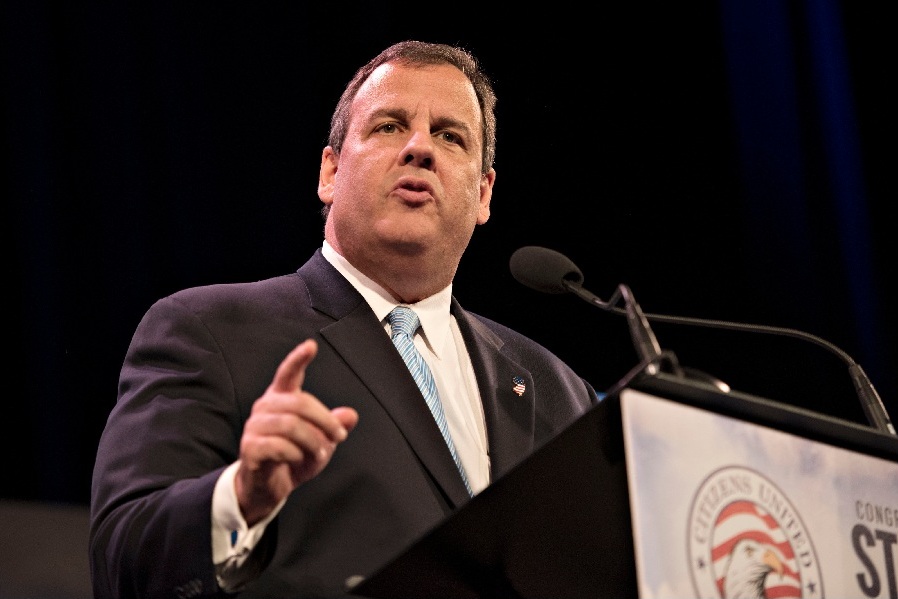A tussle over public pensions in New Jersey has put the trusty cash balance plan in the spotlight, as Gov. Chris Christie's pension panel pitches them as a way to manage the state's funding woes.
The New Jersey Pension and Health Benefit Study Commission, Mr. Christie's panel, filed a report Tuesday calling for
a solution to the underfunded status of the state's public employee pension and health benefits.
The Garden State's unfunded pension liability leaped from $37 billion in 2013 to $83 billion in 2014, according to the report. Enter the cash balance plan.
The commission
proposes freezing the existing pension plans and starting new cash balance plans.
Cash balance plans are defined-benefit plans that depict the employee's benefit as an account balance that will receive a pay credit based on the worker's salary, and an interest credit based on the account's balance and a measure of investment performance. That interest credit can be a fixed rate or a variable rate that's linked to an index.
Under the commission's design in New Jersey, workers will be guaranteed the contributions based on pay credits made to the account and interest credits according to a minimum interest crediting rate in the duration of a worker's participation in the plan. Assumptions detailed in the report state that employer and employee contributions will be 4% of salary, with 8% employer and employee contributions for those who don't participate in Social Security. The new plans are estimated to cost the state $1.23 billion.
Retirement plan advisers need to know there's more to the cash balance plan than the mere ability to scoop an ailing pension plan out of the fire. In fact, they are a great way for higher-earning business owners to save even more money for retirement, when these cash balance plans work alongside a traditional 401(k).
Consider that while elective deferrals into a 401(k) are capped at $18,000 annually, an employee can contribute up to $53,000 into all defined-contribution plans, including profit-sharing. Contributions into defined-benefit plans — and the cash balance plan is a defined-benefit plan — is capped at $210,000 in 2015. A breakdown of 2015 contribution limits is available on
the IRS website.
A Towers Watson analysis of the 2013 Fortune 500 found that 15% of the companies offered a cash balance and a defined-contribution plan.
“You see cash balance plans coming up where employees are lawyers and doctors, and they're taking more advantage of the tax opportunity,” said Kevin Wagner, a senior retirement consultant at Towers Watson.
What kind of employer might be suited for a cash balance plan?
— Most new cash balance plans are being installed at firms with fewer than 25 employees, namely professional practices, according to Jeremy Palm, a consultant at Lurie Besikof Lapidus & Co.'s retirement plan consulting group.
— Single owners or a handful of owners of the small business are generally aiming to save more money themselves. However, passing nondiscrimination testing is what drives the contributions they need to make for employees. This way, both employers and employees are putting money away for retirement, according to Mr. Palm.
— Retirement plan finances become more predictable with a cash balance plan than with a traditional defined-benefit pension. “I have a better understanding of what the benefits will be in 20 years because I know I'm putting in 5% a year and crediting interest,” Mr. Wagner said. “With a traditional pension [what you get] depends on how long you live and your pay at retirement.”
— Cash balance plans also distribute their benefits in a way that's more egalitarian. Traditional pensions allocate the majority of contributions to workers who have been at a company for a long time and retire from there, while workers who are more mobile don't fare as well. Cash balance plans spread the benefits across the population of workers, Mr. Wagner said.
Advisers must weigh several considerations before settling on a cash balance plan, particularly if they're dealing with a client who wishes to freeze a pension plan and move to a cash balance arrangement.
The biggest consideration is that the longest-tenured workers have most to lose from a pension conversion to cash balance. Remember, traditional pensions reward tenure. That's not the case for cash balance plans.
To combat that, Mr. Wagner had three suggestions.
Employers can grandfather older employees, allowing them to stay in the pension plan and continue accumulating benefits there. Plan sponsors also can give those workers the best of both worlds: “If you leave in the next five years, we'll see where you would've done better — the old pension or the new pension, and we'll give you the better of the two,” Mr. Wagner said.
Finally, employers can step up contributions in the cash balance plans for older workers to make up for the losses they will experience.
“Cash balance plans offer business owners an exciting opportunity to make large contributions to retirement plans and the ability to accelerate their own retirement savings while helping their employees save for retirement,” Mr. Palm said.







